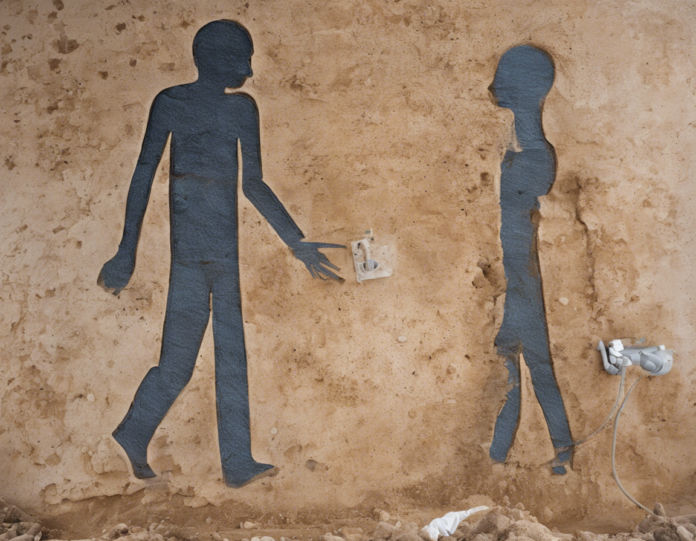Introduction
Human excreta, including urine and feces, are often overlooked when considering public health risks. When untreated or improperly managed, human waste can pose serious dangers to individuals and communities. From water contamination to the spread of infectious diseases, the consequences of neglecting human excreta management can be severe. In this article, we will explore the various dangers associated with untreated human excreta and the importance of proper sanitation practices.
Health Risks of Untreated Human Excreta
-
Water Contamination: Improper disposal of human waste can lead to contamination of water sources such as rivers, lakes, and groundwater. This contamination can introduce harmful pathogens like bacteria, viruses, and parasites into the water supply, posing significant health risks to individuals who consume or come into contact with contaminated water.
-
Spread of Infectious Diseases: Human excreta is a common source of infectious diseases such as cholera, typhoid, hepatitis, and parasitic infections. When left untreated, these diseases can spread rapidly within communities, leading to outbreaks and public health emergencies.
-
Vector-Borne Diseases: Inadequate sanitation facilities can attract disease-carrying vectors such as flies, mosquitoes, and rodents. These vectors can breed in areas contaminated with human excreta and transmit diseases like malaria, dengue fever, and diarrheal illnesses to humans.
-
Soil Contamination: Human waste contains nutrients and microorganisms that, when improperly disposed of, can contaminate the soil. This contamination not only affects agricultural productivity but can also lead to the uptake of harmful pathogens by crops, posing risks to food safety and human health.
Environmental Impact of Untreated Human Excreta
-
Eutrophication: The discharge of untreated human waste into water bodies can lead to eutrophication, a process in which excessive nutrients, such as nitrogen and phosphorus, promote the overgrowth of algae and aquatic plants. This can result in oxygen depletion, water quality degradation, and harm to aquatic ecosystems.
-
Greenhouse Gas Emissions: Decomposition of untreated human excreta in anaerobic conditions produces methane, a potent greenhouse gas that contributes to climate change. Improper waste management practices, such as open defecation or unlined pit latrines, can release significant amounts of methane into the atmosphere.
-
Contamination of Natural Habitats: Untreated human excreta can pollute natural habitats, including forests, wetlands, and coastal areas. This pollution can disrupt ecosystems, harm wildlife, and degrade biodiversity, leading to long-lasting environmental damage.
Social and Economic Impacts
-
Healthcare Costs: The burden of treating diseases caused by untreated human excreta falls heavily on healthcare systems, leading to increased healthcare expenditures and reduced productivity. Preventable illnesses can drain resources and hinder economic development in affected communities.
-
Social Stigma: Lack of access to proper sanitation facilities can contribute to social stigma and discrimination, particularly affecting women and girls. The absence of private and safe toilets can limit educational opportunities, employment prospects, and overall well-being.
-
Loss of Livelihoods: Contamination of water sources and agricultural lands due to untreated human waste can undermine livelihoods dependent on natural resources. Fishing communities, farmers, and other vulnerable groups may suffer income losses and food insecurity as a result of environmental degradation.
Importance of Proper Sanitation Practices
-
Safe Disposal: Proper disposal of human excreta involves the use of improved sanitation facilities such as toilets, latrines, and sewage systems. These facilities help contain waste safely and prevent contamination of the environment and water sources.
-
Hygiene Promotion: In addition to safe disposal, promoting good hygiene practices such as handwashing with soap, using clean water for drinking and cooking, and maintaining personal and environmental cleanliness is crucial for preventing the spread of diseases associated with human excreta.
-
Wastewater Treatment: Wastewater containing human excreta should undergo treatment processes to remove contaminants and pathogens before being discharged back into the environment. Effective wastewater treatment safeguards public health and protects ecosystems from pollution.
FAQs (Frequently Asked Questions)
- What are the common diseases spread by untreated human excreta?
-
Common diseases include cholera, typhoid, hepatitis A, diarrheal illnesses, and parasitic infections like hookworm and giardiasis.
-
How does improper disposal of human waste impact water sources?
-
Improper disposal can contaminate water sources with pathogens, leading to waterborne diseases and posing risks to public health.
-
What is eutrophication, and how is it related to untreated human waste?
-
Eutrophication is the excessive growth of algae and aquatic plants due to nutrient pollution. Human waste can introduce nutrients into water bodies, triggering eutrophication.
-
How can communities mitigate the risks of untreated human excreta?
-
Communities can improve sanitation through proper waste disposal, hygiene promotion, wastewater treatment, and access to adequate sanitation facilities.
-
What are the environmental consequences of untreated human excreta?
- Environmental consequences include soil contamination, water pollution, greenhouse gas emissions, habitat destruction, and biodiversity loss.
In conclusion, addressing the dangers of untreated human excreta requires a holistic approach that combines effective sanitation practices, hygiene promotion, and sustainable waste management strategies. By mitigating health risks, protecting the environment, and fostering social well-being, investments in improved sanitation infrastructure and behavior change initiatives can yield long-term benefits for individuals and communities worldwide.





